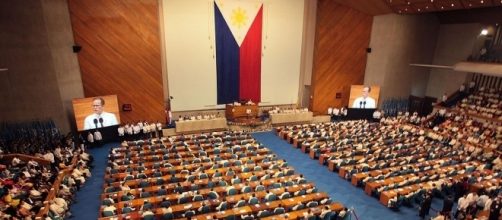The Russian propaganda that appeared in the United States along with President Trump's election campaign brought the term "fake news" from the social media and into the mainstream. Now the term has evolved into anything that President Trump or extreme right-wing politicians do not like. While the trends seem to permeate the Western world, it appears that there is an effort to fight fake news in the Philippines as well.
Arrested for sharing 'fake news'
In late June, Philippine Senator Joel Villanueva filed a bill that would criminalize the distribution of fake news.
As expected, media groups believe that this could lead to censorship. As a side note, the Philippines also have a president that share similarities with Trump as they are both just as incendiary and might be even more controversial than Trump, Rodrigo Duterte.
The bill is called "An Act Penalizing the Malicious Distribution of False News and Other Related Violations," and it penalizes those who publish and even share false stories. In fact, there is even more of a crackdown on those who violate this law such as a prison term of up to five years. Even more, government officials could face double the Jail Time. The sentence given would also depend on the status of the person who committed the crime.
Reining in propaganda
Criticism of this bill says that the definition of "fake news" is so broad that anyone could get arrested for it. Villanueva defended his bill saying that fake news creates divisions, which means that they're well aware of the controversy with fake news in Western society. Almost daily, President Trump has gone after the media for their negative coverage of him. Just last week, he staged two attacks on the media, one of them was with going after an MSNBC host and the other, he shared a tweet that showed a metaphorical beating of CNN which he considered his enemy.
At the same time, President Trump has embraced fake news even spread unproven stories to form his view and even at times, create his own news stories by distorting information and sharing it out.
Facebook has already made an effort to go after propaganda that was distributed through its platform as it was learned that during the presidential election, Facebook was used the most to distribute fake news. Russia has been known to create propaganda and their views of the world and pushed them out as fact which also distorts information. The reports about the law have generated extensive debate from people who feel the law is censorship which could very well be given power to a Filipino government that is already led by a controversial figure.


